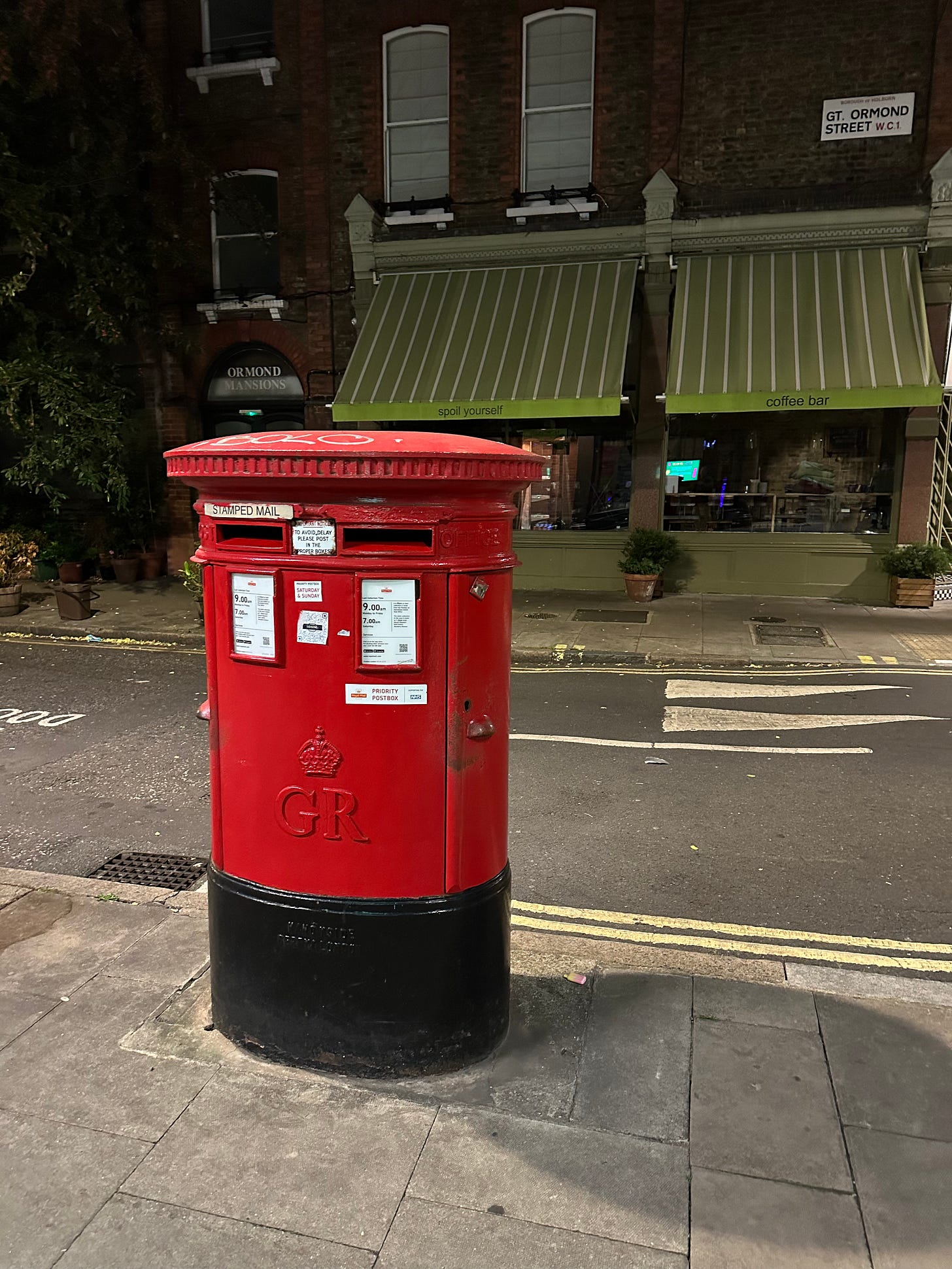Letter 4 - Letters from London
"Hecate, Worms, Kisses"
The first week they were in London he left the apartment to explore his new neighborhood on foot. He decided to learn to walk around Bloomsbury without looking at his phone. He decided also on a plan: each day he would walk in different directions in something like a methodological fashion, making each walk a mix of places he’d been and places he hadn’t…
Keep reading with a 7-day free trial
Subscribe to The Querent to keep reading this post and get 7 days of free access to the full post archives.


